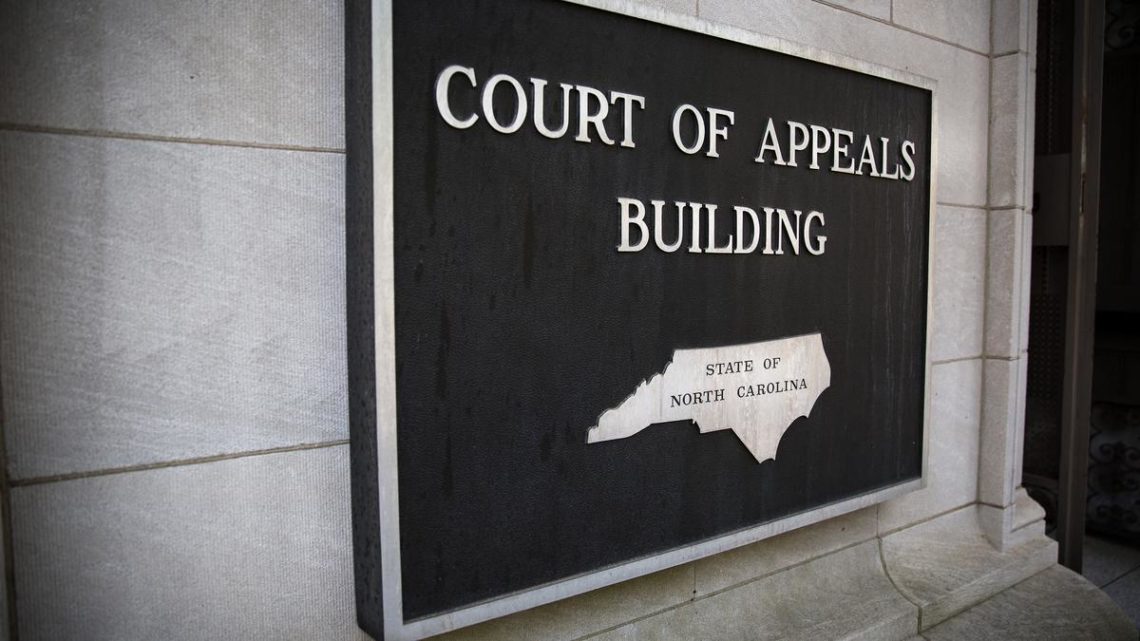In S&S Family Business Corp., et al. v. Clean Juice Franchising, LLC, the North Carolina Court of Appeals addressed the impact of a forum selection clause in a business contract. A forum selection clause is a contractual provision that, if enforceable, designates a particular state or court to bring any litigation between the parties. In most instances, a forum selection clause can be mandatory – the parties must litigate disputes in the forum provided in the clause. Factual History Clean Juice Franchising, LLC (“Clean Juice”) entered a multi-unit agreement (the “Multi-Unit Agreement”) with S&S Family Business Corp. (“S&S”) to franchise at least three Clean Juice stores. The Multi-Unit…
-
-
IMPLIED EASEMENTS BY PRIOR USE
In B.V. Belk, Jr. v. VRS Magnolia Plaza, LLC, the North Carolina Court of Appeals addressed the question of when an easement can be implied by prior use. An easement is an individual’s right to use the land of another individual for a specific purpose. Frequently, easements are created by the express agreement of the landowner and the individual seeking to use the land; however, as the court in Belk confirmed, easements can also be created by implication. Factual History In Belk, B.V. Belk, Jr. (“Belk”) acquired 107 acres of undeveloped land in 1986. He then transferred title to a joint venture consisting of himself, as managing member…
-
INTERPRETATION OF A WILL: WHAT DO PER CAPITA AND PER STIRPES MEAN?
The North Carolina Court of Appeals recently released an opinion in the matter Brawley v. Sherrill. The parties were disputing the interpretation of a will, which provided per capita distribution of estate assets to the testator’s children, but per stirpes distribution to her grandchildren. What do these terms mean, and how do they work together in the same estate plan? Per Capita and Per Stirpes Defined For estate plans, the term “surviving” identifies individuals who are alive at the time the testator (the individual leaving the Will) dies. A per capita distribution plan divides estate assets equally to surviving heirs at the level of descendancy stated in…
-
TENANCY AT WILL
Rent prices in Charlotte are increasing, and these increases often lead to an uptick in evictions, as more tenants are unable to make their monthly payments. In North Carolina, a landlord can evict a tenant through a process called summary ejectment. In a typical summary ejectment action, a landlord alleges a valid lease agreement with the tenant, and alleges the tenant has breached the terms of the lease agreement, most frequently by failing to pay rent. The court will review the lease agreement, determine if the tenant in fact breached its terms, and determine if the landlord followed the statutory and/or contractual requirements to notify the tenant of his breach. …
-
A MAJOR WIN ON APPEAL FOR A LINDLEY LAW CLIENT
Lindley Law represented the Plaintiff, DavFam, LLC (“DavFam”), in a matter initially before the court in 2016. After an unsuccessful appeal by the Defendant, and petition for discretionary review to the North Carolina Supreme Court, the trial court’s decision in favor of DavFam is affirmed and upheld. Congratulations to DavFam and Lindley Law for the victory! DavFam is a closely-held family entity, whose members are siblings, and which owns real estate across North Carolina. The Defendant is a sibling of the DavFam members, but he is not a member or manager in the LLC. Among the assets held by DavFam is real estate located in Alleghany County, North Carolina…
-
UNJUST ENRICHMENT
Party A and Party B enter into a contract. Party A will perform a service for pay from Party B. Party A performs the agreed-upon services, but Party B refuses to pay. What happens? As most of us know, Party A can sue Party B for breaching the contract. But what happens if there is no contract? A common example is Party A and Party B execute a contract for Party A’s services in exchange for Party B’s payment. Party A performs the services and Party B provides timely payment in full. The Parties then execute a second contract for the same services in exchange for the same payment. …
-
ENFORCING COVENANTS NOT TO COMPETE AGAINST DOCTORS: PUBLIC POLICY CONSIDERATIONS
The North Carolina Court of Appeals decision in Aesthetic Facial & Ocular Plastic Surgery Ctr., P.A. v. Zaldivar highlights the unique impact of public policy considerations when determining the enforceability of a non-compete agreement against a medical doctor. To what extent are such agreements enforceable? At what point does the concern for the health of the general public outweigh the interest in enforcing the specific terms of an employment contract? Elements to Determine the Enforceability of Non-Compete Agreements A non-compete agreement restricts a former employee’s ability to work for a competitor of, or otherwise compete with, the employer. They are frequently contained in employment contracts. North Carolina recognizes…
-
Four Tips for Drafting Jury Instructions: A Tightrope Walk between Clarity and Accuracy
What’s the best way for attorneys to show appreciation for jurors during the North Carolina Judicial Branch’s Jury Appreciation month? Lavishing them with gifts is prohibited, but one way attorneys can show some appreciation is by drafting jury instructions that make the lives of jurors easier by streamlining the deliberation process. When it comes to cases with complex statutory language, lawyers may be faced with the task of drafting jury instructions and must learn to bridge the gap between legal jargon and natural language. To add to the pressure of crafting meticulously worded jury instructions, many appeals are based…
-
Business Basics: The Duty of Good Faith and Fair Dealing and the Parol Evidence Rule
The duty of good faith and fair dealing is essentially the Golden Rule of Contract law and Business Law: treat others how you want to be treated, and you have a better chance of avoiding litigation. When parties run afoul of this duty, courts notice and hold them accountable. In Blondell v. Ahmed, the North Carolina Court of Appeals remanded a case where it believed the sellers of a home may have breached their duty of good faith and fair dealing under a Listing Agreement with their real estate agent.[1] In March of 2013, the sellers of a house,…
-
Rule 11 Sanctions and Incompetency Proceedings
In Re Cranor began as a straightforward incompetency proceeding, but devolved into a Rule 11 battle between two North Carolina attorneys.[1] The proceeding centered on a woman named Carole Cranor. Because of her early onset dementia, Carole had difficulty preparing meals for herself, suffered dehydration, and sustained a fall due to her diminished mental capacity. As such, she hired a friend and attorney, Harriet Hopkins, to help her choose a long-term care facility and get her affairs in order. Despite a falling out over their mother’s estate some years back, Frank, Carole’s brother, intervened when he realized Ms. Hopkins drafted a durable power of attorney (“DPOA”)…








